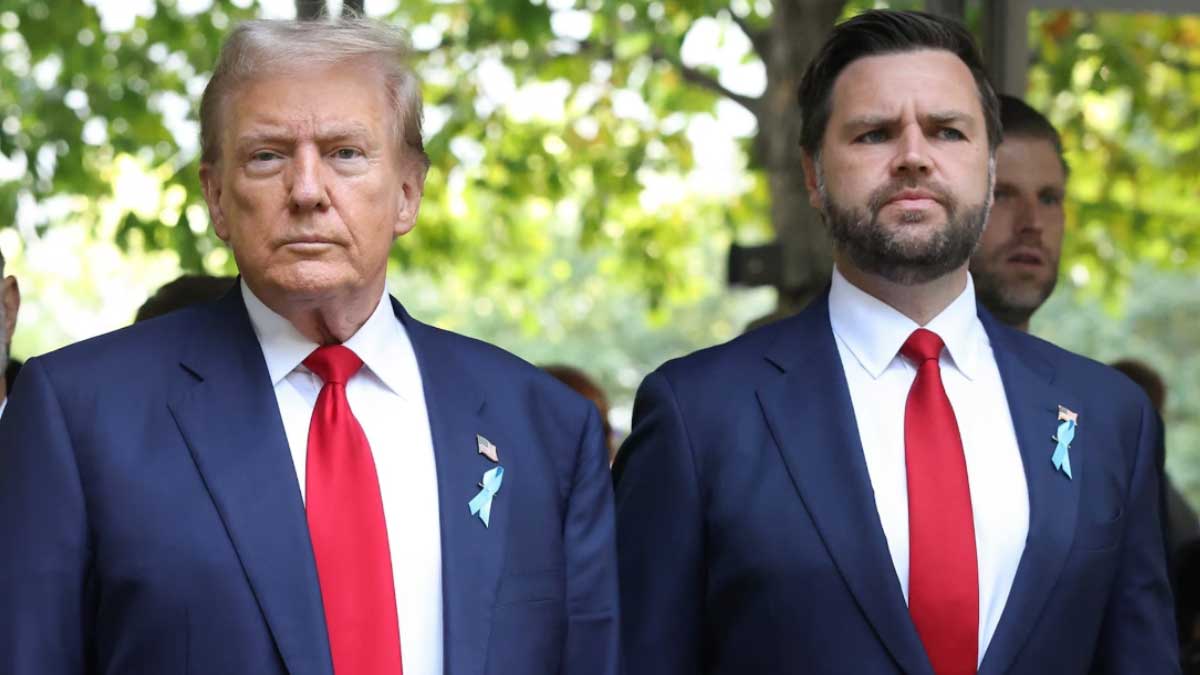- Home
- Billionaires
- Investing Newsletters
- 193CC 1000
- Article Layout 2
- Article Layout 3
- Article Layout 4
- Article Layout 5
- Article Layout 6
- Article Layout 7
- Article Layout 8
- Article Layout 9
- Article Layout 10
- Article Layout 11
- Article Layout 12
- Article Layout 13
- Article Layout 14
- Article Sidebar
- Post Format
- pages
- Archive Layouts
- Post Gallery
- Post Video Background
- Post Review
- Sponsored Post
- Leadership
- Business
- Money
- Small Business
- Innovation
- Shop
Recent Posts
JD Vance’s Evolving Relationship with Trump: From Critic to Ally

In a recent report by the Washington Post, Sen. JD Vance, a Republican from Ohio, was highlighted for his past criticisms of former President Donald Trump. According to documents obtained by the newspaper, Vance expressed significant doubts about Trump’s leadership during the 2020 election cycle, claiming he believed Trump “thoroughly failed” in fulfilling his promises and even suggested that Trump would “probably lose” the election.
These comments were made public following a review of Vance’s messages from February 2020, in which he communicated with an unidentified user on what was then known as Twitter. Vance articulated his frustrations, stating, “Trump has just so thoroughly failed to deliver on his economic populism (excepting a disjointed China policy).” This sentiment reflected a growing discontent among some of Trump’s supporters regarding his economic policies, especially given the context of the upcoming election.
In June 2020, just a few months before the contentious presidential election that Vance later claimed was stolen, he reiterated his skepticism. In a message to the same user, he remarked, “I think Trump will probably lose,” indicating a belief that the electoral landscape was not favorable for the incumbent president at that time.
William Martin, a spokesperson for Vance, defended his boss’s previous criticisms, claiming that they were not intended as direct attacks on Trump but rather a critique of “establishment Republicans who thwarted much of Trump’s populist economic agenda.” This assertion suggests that Vance’s remarks were aimed at those within the Republican Party who did not fully embrace Trump’s approach to governance.
Interestingly, Vance’s messages also hinted at his potential role within the Trump administration. He indicated that he had been offered a position but ultimately “turned down my appointment from the emperor.” This reference to Trump as an “emperor” raises questions about Vance’s views on Trump’s leadership style, albeit indirectly.
Despite his earlier criticisms, Vance has since acknowledged that his past judgments of Trump were misguided. Following Trump’s election victory in 2016, Vance initially positioned himself as a critic, identifying as a “never Trump guy” and expressing disapproval of Trump’s candidacy during interviews. He conveyed to Charlie Rose that he had “never liked” Trump, and his writings in major publications like The Atlantic and The New York Times characterized Trump as “unfit for our nation’s highest office.”
Vance’s evolving stance on Trump is noteworthy. In various private conversations, he oscillated between viewing Trump as a “cynical asshole” and likening him to “America’s Hitler.” Such stark assessments highlight the internal conflict many Republicans faced regarding Trump’s candidacy and presidency. However, Vance later expressed regret for his previous criticisms, suggesting he had undergone a transformation in his support for Trump, indicating, “I was wrong about Trump.”
The relationship between Vance and Trump appears to have evolved into a more cordial alliance, despite the earlier tensions. This summer, during an interview with NBC, Vance mentioned that Trump had “explicitly” indicated he would veto a national abortion ban, which led to public disagreements between the two. Trump later rebutted Vance’s assertion during a debate with Vice President Kamala Harris, emphasizing, “I didn’t discuss it with JD in all fairness.” Subsequently, Vance clarified his comments, indicating that they had not had substantial discussions on the matter since it was “not realistic.”
Looking ahead, Vance is set to debate Democratic vice presidential candidate, Minnesota Gov. Tim Walz, on Tuesday. This debate represents the final faceoff of the 2024 presidential campaign and will be broadcasted at 9 p.m. EDT on CBS News. As the election approaches, Vance’s relationship with Trump, coupled with his evolving views on the former president’s leadership, will likely play a significant role in shaping his political strategy and appeal to voters.
The dynamics between Vance and Trump illustrate a broader trend within the Republican Party, where loyalty to Trump remains a critical factor, even among those who have publicly criticized him. As Vance continues to navigate his political career, his relationship with Trump may influence his standing within the party and impact his ability to connect with constituents who have varying opinions on the former president.
In summary, JD Vance’s past criticisms of Trump reveal the complexities of political allegiance within the Republican Party. While he initially doubted Trump’s capability to lead effectively, Vance has since shifted his stance, recognizing the former president’s influence on the party. As the upcoming debate looms, the interplay between Vance’s evolving views and his connection with Trump will be closely watched, potentially shaping the narrative of the 2024 election cycle.
Recent Posts
Categories
- 193 Countries Consortium Partner1
- 193cc Digital Assets2
- 5G1
- Aerospace & Defense48
- AI37
- Arts3
- Banking & Insurance11
- Big Data3
- Billionaires1,261
- Boats & Planes1
- Business332
- Careers13
- Cars & Bikes79
- CEO Network1
- CFO Network17
- CHRO Network1
- CIO Network1
- Cloud10
- CMO Network18
- Commercial Real Estate7
- Consultant1
- Consumer Tech194
- CxO1
- Cybersecurity73
- Dining1
- Diversity, Equity & Inclusion4
- Education7
- Energy8
- Enterprise Tech29
- Events11
- Fintech1
- Food & Drink2
- Franchises1
- Freelance1
- Future Of Work2
- Games149
- GIG1
- Healthcare79
- Hollywood & Entertainment203
- Houses1
- India’s 1000 Richest1
- Innovation46
- Investing2
- Investing Newsletters4
- Leadership65
- Lifestyle11
- Manufacturing1
- Markets20
- Media327
- Mobile phone1
- Money13
- Personal Finance2
- Policy569
- Real Estate1
- Research6
- Retail1
- Retirement1
- Small Business1
- SportsMoney42
- Style & Beauty1
- Success Income1
- Taxes2
- Travel10
- Uncategorized13
- Vices1
- Watches & Jewelry2
- world's billionaires1,230
- Worlds Richest Self-Made Women2
Related Articles
South Korea Plane Crash: A Tragic Loss and Global Mourning
The tragic plane crash at South Korea’s Muan International Airport on Sunday...
By 193cc Agency CouncilDecember 30, 2024H-1B Visa Debate Splits Trump Allies and Silicon Valley
The debate over H-1B visas has once again become a contentious issue,...
By 193cc Agency CouncilDecember 28, 2024Trump Moves $4B Stake in Truth Social Parent, Stock Drops 6%
Donald Trump recently transferred his 57% stake in Trump Media & Technology...
By 193cc Agency CouncilDecember 20, 2024House Rejects Trump-Backed Funding Bill, Shutdown Looms
The U.S. House of Representatives rejected a new government funding bill on...
By 193cc Agency CouncilDecember 20, 2024















Leave a comment